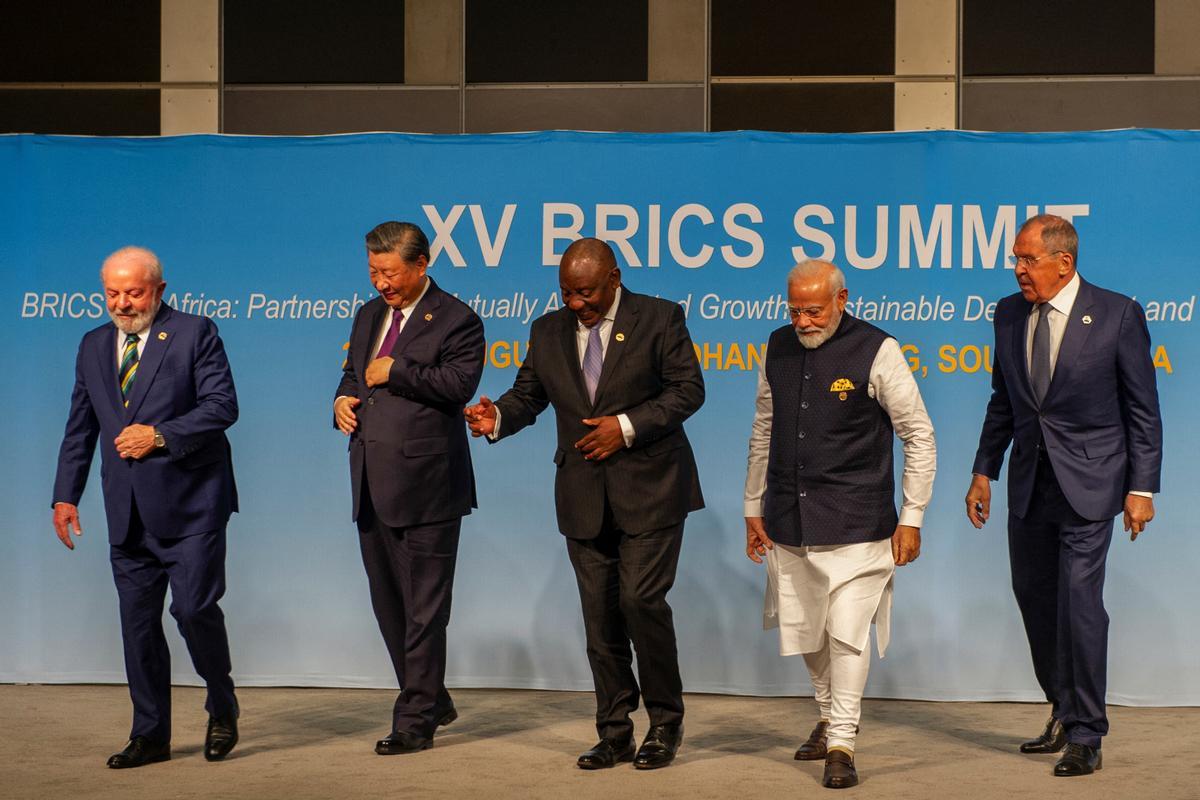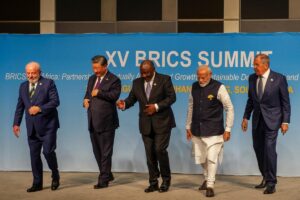The recent BRICS summit, gathering leaders from Brazil, Russia, India, China, and South Africa, has shed light on a series of challenges and internal issues that have left this alliance in a state of uncertainty. More than a resounding triumph, the meeting seems to have conveyed a warning message about the decline of this coalition in the global geopolitical arena. Beyond the internal signs of divisions and weaknesses, the response from other nations to the proposal of joining the BRICS also paints a murky and questioning picture of the effectiveness of this partnership.
One of the most notable episodes highlighting the latent fragility of the BRICS is the cautious response from Saudi Arabia to the offer of becoming a full and active member of the coalition. While this offer could have been seen as an opportunity to increase the group’s influence and reach, Saudi Arabia’s Foreign Minister, Faisal bin Farhan, has made it clear that the country won’t rush to a decision. Instead of an immediate acceptance, Saudi Arabia has opted to seek more details about the invitation and the conditions of membership before committing. This prudence on the part of a key player in the Middle East highlights the lack of confidence in the BRICS’ ability to make a significant impact.
Morocco, an influential player in North Africa, has drawn attention due to its absence from the BRICS summit. The country declined to attend, citing concerns about the reliability of the host, South Africa. Tensions between Morocco and South Africa have been palpable, and Morocco has expressed reservations about whether South Africa might have hidden agendas that could go against Moroccan interests. This incident underscores the lack of unity and even mistrust among countries that could play a significant role in the expansion of the BRICS. It shows how rivalries and suspicions can erode efforts at cooperation and economic growth in the region.
In parallel, Algeria’s experience at the summit has been one of disappointment. Despite its interest in joining the BRICS and its formal application to join the bloc, the proposal was rejected. Concerns about Algeria’s economy and politics have been cited as reasons behind this decision. This reflects the level of scrutiny and caution with which existing members of the group consider the inclusion of new actors. While Algeria had hoped to be part of this economic and political alliance, the rejection highlights the standards and requirements that the BRICS set for those seeking to join their ranks.
In summary, Saudi Arabia’s cautious reaction and the varied responses from other proposed countries to expand the BRICS underline the doubts and lack of cohesion affecting this coalition. The pursuit of global influence and the aspiration to stand as an alternative to the Western bloc are both questioned by the uneven unity among members and the uncertainty of potential additions. What was once expected to be a defining summit on the global agenda has transformed into a symbol of the challenges and tensions that threaten to derail this aspiration. The BRICS, which once promised to be a unified voice on the global geopolitical stage, now face an uncertain future, where cooperation and cohesion seem more elusive than ever.






